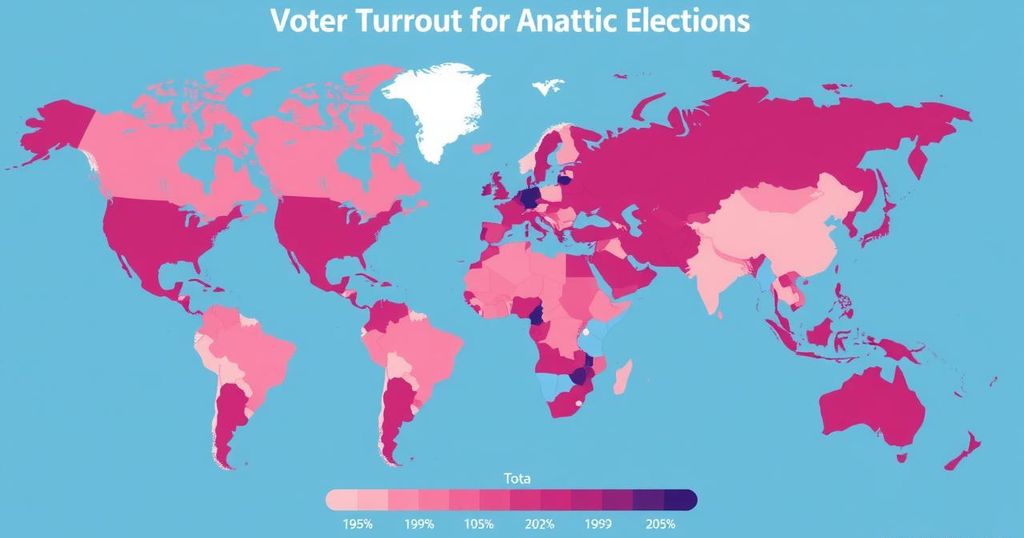Reflections on the 2024 Global Elections: Trends in Democracy and Voter Behavior

In 2024, nearly half the global population voted across over 60 countries, showcasing unprecedented democratic engagement. However, outcomes reflected a troubling trend of self-serving voter behavior, driven by immediate economic concerns rather than collective interests. Key incumbents, including Joe Biden and Narendra Modi, faced losses, while populist sentiments in various nations signaled a growing challenge to traditional governance. The results reinforce the complexity of contemporary democracy and its implications on international relations.
In 2024, a significant milestone in global democracy unfolded as nearly half of the world’s population participated in elections across more than 60 countries. This unprecedented involvement showcased the continual evolution of democratic values and practices. Despite the optimism surrounding such widespread engagement, the outcomes revealed a prevailing inclination towards self-interest rather than the collective good, highlighting persistent themes of fear and greed in voter motivations.
In established democracies, pressing economic issues overshadowed long-term challenges like climate change. The Labour Party in the United Kingdom experienced a remarkable victory due to public dissatisfaction with the economy, while President Joe Biden faced consequences for inflation and stagnant wages in the United States, leading to voters turning towards Donald Trump.
Around the globe, various incumbents faced similar repercussions; notable losses were seen in India, where Prime Minister Narendra Modi’s party lost support amidst economic grievances, and in South Africa, where the ruling party lost its majority. The contrast in Mexico, however, where a sitting party gained ground, stood out against this backdrop of political instability.
Observably, the outcomes in places like Germany and Algeria further demonstrated the ongoing quest for democratic governance, deviating from historical constraints. Nevertheless, instances of electoral manipulation and encroachments on democracy were starkly evident, particularly in Russia, where Vladimir Putin claimed an implausible 87% of the vote, reflecting a dangerous distortion of democratic principles.
Further complicating the scenario, international relations were poised for reconsideration, especially regarding Ukraine, which found itself stifled under Putin’s invasion, creating a complex interplay of democracy and autocracy. The coming years could expose how U.S. political shifts might reverberate globally, reshaping how democracies function and sustain their ideals. The expansive electoral participation of 2024 illustrates the resilience of democratic processes, yet it simultaneously serves as a reminder of the ongoing challenges that threaten democratic integrity worldwide.
The 2024 elections marked a watershed moment, with an unprecedented number of countries engaging their electorates amidst a history of democratic evolution. Nearly half the global population participated, signaling a crucial turning point in civic engagement. However, the motivations behind voting demonstrated a complex blend of immediate self-interest versus collective responsibilities, with economic concerns overshadowing long-term global issues such as climate change. This multifaceted landscape of political decision-making across different economies and systems underscores the pressing need for awareness and urgent discourse surrounding the realities of contemporary democracy and governance.
In summary, the 2024 elections illuminated the dualistic nature of contemporary democracy, where significant participation coexists with disheartening trends of self-interest and populism. As various governments faced electoral challenges driven primarily by economic conditions, the implications of such dynamics extend globally, affecting international relations and the trajectory of democratic ideals. The lessons from this year reflect a critical juncture, emphasizing that while democratic engagement is vital, the integrity of its practices remains paramount in fostering a truly democratic society.
Original Source: www.cnn.com








